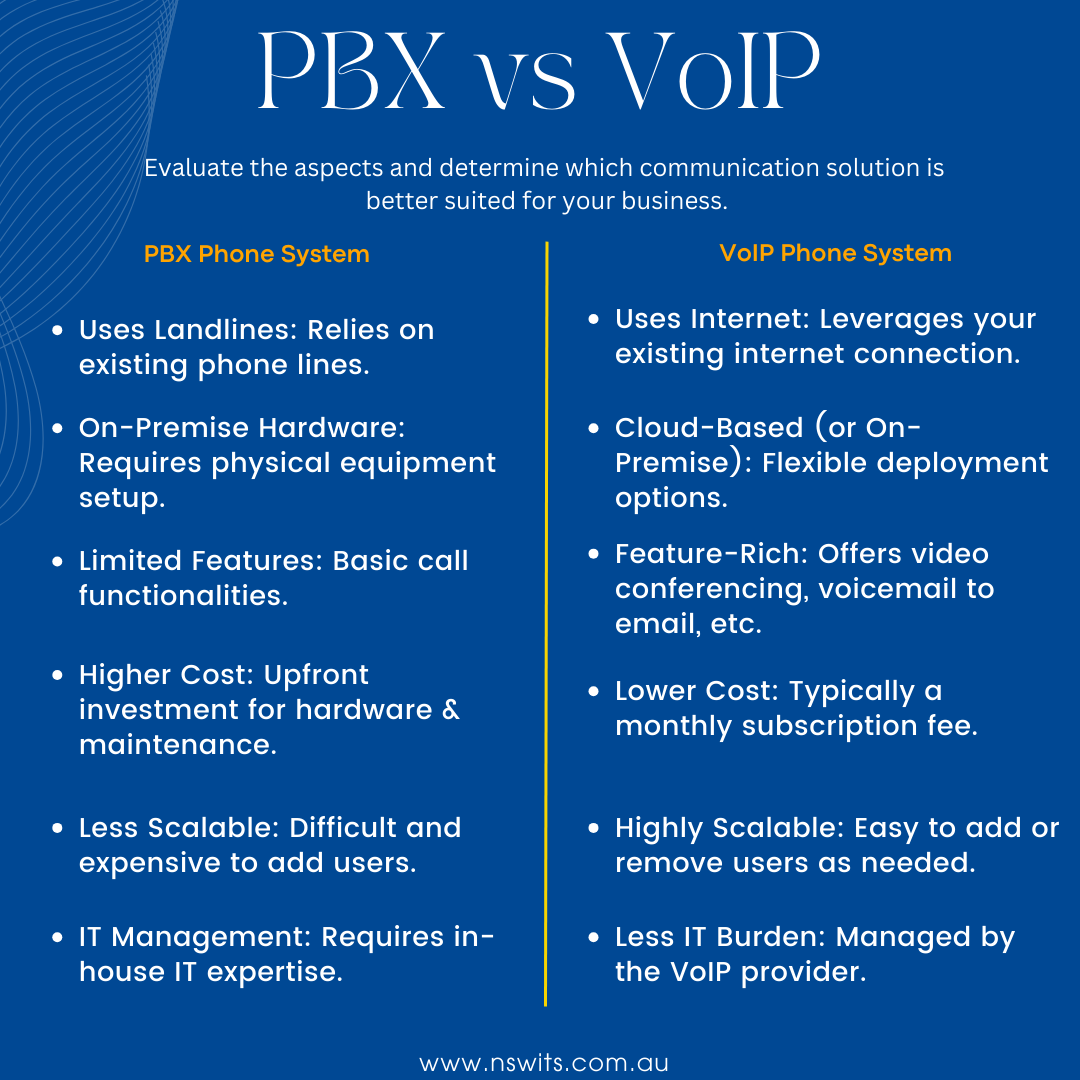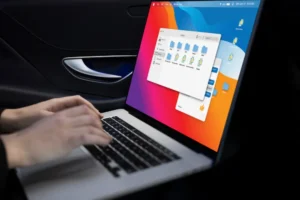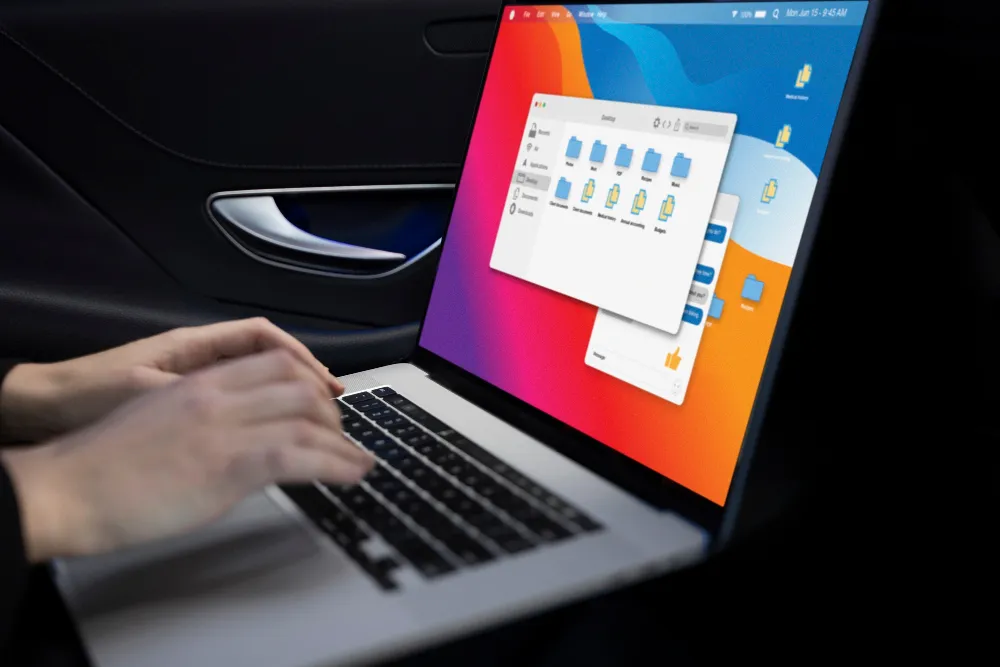Business communication can be a tangled mess between missed calls, dropped connections, and outdated features, and traditional phone systems often leave us longing for a simpler solution.
Are you also caught in this chaotic situation?
PBX has long been the backbone of traditional phone systems, relying on physical hardware and dedicated lines to facilitate voice communication. VoIP, on the other hand, leverages the power of the Internet to transmit voice and multimedia data, transforming analog signals into digital packets that traverse networks.
However, understanding the differences is the only way to truly grasp the potential implications for your business. So, let’s set sail and explore what these two communication systems represent.
What are the Differences between PBX and VoIP?
| Aspects | PBX Phone System | VoIP Phone System |
| Technology | Uses traditional landline wires and circuit-switching | Uses internet protocol (IP) network |
| Deployment | On-premise hardware system | Cloud-based or on-premise software |
| Scalability | Can be expensive and complex to scale | Easier and more affordable to scale |
| Mobility | Limited to office phones | Can be used on various devices (phones, computers, mobile apps) |
| Features | Basic features like call forwarding, voicemail | A wider range of features, including video conferencing, instant messaging, voicemail to email |
| Maintenance | Requires in-house IT expertise or service calls | Typically handled by the VoIP provider |
| Cost | Higher upfront cost for hardware and maintenance | Lower upfront cost, typically a monthly subscription fee |
| Reliability | Relies on traditional phone lines, generally reliable | Relies on the internet connection, call quality can be affected by outages |

PBX (Private Branch Exchange)
PBX, or Private Branch Exchange, is a traditional business phone system that has been a staple in business communication for decades. This analog phone system serves as a central switching system that connects multiple telephone extensions within the organisation and manages incoming and outgoing calls.
However, with the rise of digital technology, PBX systems have evolved to include software-based and cloud-based solutions. Software-based PBX, also known as IP PBX (Internet Protocol Private Branch Exchange), operates on a computer server and uses IP networks to transmit voice calls. Cloud-based PBX, also referred to as hosted PBX, shifts the infrastructure and management of the system to a third-party provider, who delivers the PBX functionality over the internet.
How PBX Phone System Works?
When a call is made within the organisation, the PBX phone system handles call routing by directing the call to the appropriate extension or destination based on the dialled number or other criteria. It manages the internal call flow and ensures that the caller is connected with the intended recipient.
Within a PBX system, each user or device is assigned a unique extension. These extensions allow for easy internal communication without the need for external telephone lines. Users can dial the extension number to reach their colleagues within the organisation, enabling quick and efficient communication.
Features of PBX
- Call Routing: PBX systems facilitate the routing of calls within an organisation, ensuring seamless internal communication.
- Extension Dialling: Users can easily connect with colleagues within the same PBX network by dialling short extension numbers.
- Voicemail: PBX systems offer voicemail functionality, allowing users to receive messages when unavailable.
- Call Transfer: Users can transfer calls to other extensions or external numbers effortlessly.
Advantages of PBX
- Reliability: Traditional PBX systems are known for their reliability, with established infrastructure ensuring consistent performance.
- Security: On-premise PBX systems provide a level of security as they are not exposed to external networks.
- Integration: PBX systems can integrate with other telecommunication technologies, such as fax machines and intercom systems.
Ready to modernise your business communication with a seamless transition to cloud-based PBX? Contact us today, explore our telecom services and transform your traditional PBX into a dynamic, cloud-powered system.
VoIP (Voice over Internet Protocol)
VoIP, or Voice over Internet Protocol, is a modern telephony solution that utilises the internet for transmitting voice data packets instead of relying on traditional phone lines. This technology offers the flexibility to upgrade phone systems to cloud-based or virtual PBX systems, also known as a hosted PBX solution. Cloud-based PBX solutions offer advanced features and can be fully customised to meet the needs of any business.
How does a VoIP Phone System work?
In the VoIP phone system, voice signals are digitised by converting analog signals into digital data packets, which are then transmitted over the IP network. The digitised voice data packets are sent using the Internet Protocol (IP) and routed across the network to reach the recipient.
The data packets are reassembled and converted back into analog voice signals at the receiving end. The reassembled voice signals are then played through speakers or headsets, allowing the recipient to hear the voice communication. IP phones are designed for VoIP and connect directly to the IP network, while mobile apps and Analog Telephone Adapters (ATAs) can also serve as VoIP endpoints.
Does VoIP work without the internet?
VoIP cannot function without an internet connection. This technology uses IP networks, such as the Internet or local area networks (LANs), to transfer voice data packets. Therefore, without an internet connection or network connectivity, VoIP services cannot function.
Also read: How to set up VoIP phone system for small business?
Features of VoIP
- Cost Efficiency: VoIP systems offer significant cost savings, especially for long-distance and international calls, as they utilize existing internet infrastructure.
- Scalability: VoIP systems can easily scale with business growth without requiring extensive hardware upgrades.
- Mobility: With VoIP, users can make and receive calls on any internet-connected device, enabling mobility and flexibility.
- Advanced Features: VoIP solutions often include advanced features such as video conferencing, instant messaging, and presence indicators.
Advantages of VoIP
- Cost Savings: By leveraging internet connectivity, VoIP eliminates the need for separate phone lines, resulting in substantial cost savings.
- Flexibility: VoIP systems offer unparalleled flexibility, allowing users to work from anywhere without being tethered to a physical office.
- Feature-Rich: VoIP solutions come equipped with a plethora of advanced features, enhancing communication and collaboration within organisations.
Does VoIP require PBX?
No, Voice over Internet Protocol (VoIP) does not necessarily require a Private Branch Exchange (PBX).
A PBX is a telephone system used within an organisation to route incoming and outgoing calls within the internal network and manage various features, such as call forwarding, voicemail, and call transfers. Traditionally, PBX systems were hardware-based and required physical equipment to operate.
However, the need for a physical PBX has diminished with the new VoIP technology, which allows voice communication to be transmitted over the Internet. VoIP systems can operate without a traditional PBX by utilising software-based solutions or cloud-based services.
Upgrade your calls, upgrade your business! Transform your communication infrastructure with our cost-effective VoIP solutions. Contact us now to kickstart your journey to seamless connectivity.
Which is the better: PBX vs VoIP?

When it comes to selecting between PBX and VoIP, several factors need to be considered, including the size of the organisation, budget constraints, existing infrastructure, and desired features.
Small to Medium-Sized Businesses (SMBs)
For SMBs with limited budgets and a focus on simplicity, VoIP presents an attractive option. Its cost efficiency, scalability, and feature-rich nature make it ideal for small businesses to medium-sized businesses looking to streamline communication processes and adapt to changing business environments.
For instance, a small marketing agency with a limited budget and 20 employees can benefit from a cloud-based VoIP phone service. VoIP eliminates the need for expensive hardware and maintenance costs and offers features like virtual extensions, voicemail, call forwarding, and mobile integration. It also allows them to scale up or down as needed, adding or removing phone lines without hassle, making it ideal for SMB environments.
Large Enterprises
PBX services, particularly on-premise solutions, continue to be favoured by large enterprises due to their reliability, security, and ability to integrate with existing infrastructure. While VoIP offers compelling benefits, the robustness and established nature of traditional PBX make it a preferred choice for organisations with complex communication needs and stringent security requirements.
Imagine a multinational corporation with intricate communication networks spanning multiple departments and regions. Here, the reliability and security offered by PBX phone systems, especially on-premise solutions, become indispensable. Despite the allure of VoIP’s advanced features, the established nature and seamless integration capabilities of PBX make it the preferred choice for enterprises with complex communication needs.
However, with the rise of VoIP technology, cloud PBX systems are becoming increasingly popular, especially for smaller businesses, due to their affordability and ease of use.
Types of Phone Systems Used in Companies
What type of PBX is used in most companies?
When it comes to the types of PBX systems, there are primarily three options:
- Traditional PBX: Traditional or analog PBX phone systems utilise analog or digital technology and physical hardware, such as switchboards and copper wiring, to route calls within an organisation.
- IP-PBX: IP-PBX systems, also known as VoIP PBX or IP-based PBX, combine PBX functionality with VoIP technology.
- Virtual PBX: Virtual PBX, also known as Hosted PBX or Cloud PBX, is a cloud-based PBX system where the entire infrastructure is hosted and managed by a service provider.
Among these options, IP PBX systems and Virtual PBX systems have become the most preferred types in modern business communication due to their ease of management, scalability, and cost-effectiveness.
What type of VoIP is used in most companies?
When it comes to VoIP (Voice over Internet Protocol), there are different types and options available.
- SIP (Session Initiation Protocol): SIP is a widely adopted protocol for VoIP communication, facilitating voice and video calls, instant messaging, and multimedia services over IP networks.
- Softphones: Software applications that enable users to make voice and video calls using computers or mobile devices, leveraging VoIP technology.
- Mobile VoIP: VoIP technology used on mobile phones and tablets, allowing users to make calls over Wi-Fi or cellular data connections, providing cost savings and flexibility.
- Hybrid VoIP Solutions: Combining traditional telephony systems with VoIP technology, enabling a gradual transition to VoIP while leveraging existing infrastructure.
- Analog Telephone Adapter (ATA): An ATA is a device that allows analog telephones to connect to VoIP networks. It converts analog voice signals into digital data that can be transmitted over IP networks, enabling the use of traditional telephones with VoIP systems.
In terms of preference, the most commonly used type of VoIP is SIP-based VoIP. SIP is widely adopted and allows for interoperability between different VoIP systems.
As you navigate the decision between PBX and VoIP, it’s clear that VoIP offers a modern, internet-based solution that brings flexibility, scalability, and cost-effectiveness to the table, while PBX offers stability and reliability with its traditional hardware-based approach. Embracing the transformative potential of VoIP can pave the way for a more connected and successful future.
The ultimate choice depends on your specific needs and budget. Our team is ready to assist if you are ready to explore how VoIP can transform your communication. We’ll seamlessly guide you through the transition process, ensuring a smooth switch to VoIP while equipping your business with cutting-edge features. Reach out to us today!










